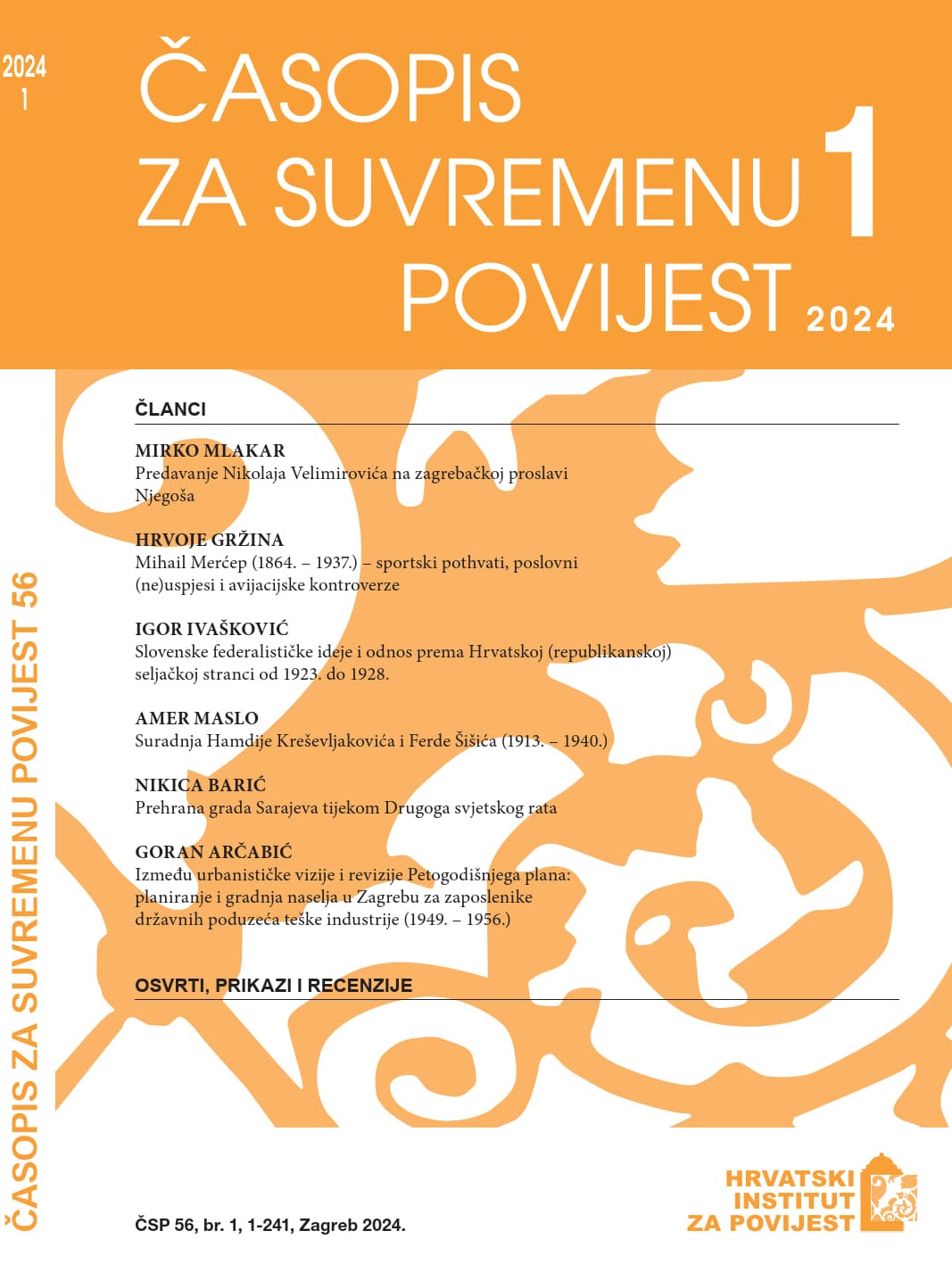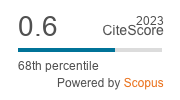Slovenian Federalist Ideas and the Attitude towards the Croatian (Republican) Peasant Party from 1923 to 1928
DOI:
https://doi.org/10.22586/csp.v56i1.26301Keywords:
Slovenians; federalism; Kingdom of SCS; communists; Slovenian People’s Party; Croatian Republican Peasant Party; Stjepan RadićAbstract
The article presents the positioning of Slovenian parties after the elections in 1923, changes in their political tactics and the parties’ internal fragmentations. The author analyses the implications of these modifications on the attitude of Slovenian political groups towards the federalist Yugoslav idea, towards the strongest Croatian political group, the Croatian (Republican) Peasant Party (HRSS), and its president Stjepan Radić. Slovenian political groups were not united on these issues. Slovenian conservatives attempted to strengthen their position through a more moderate approach towards Serbian parties. After 1923, due to the loss of confidence in the People's Radical Party and the weak performance of its Croatian affiliate, the Croatian People's Party, they sought to redefine their political partnerships. However, cooperation with the H(R)SS never reached an appreciable level. The reasons for this lie less in the ideological foundations and more in the incompatibility of the characters of their leaders. On the other hand, Slovenian liberals, despite their ideologically sincere unitarist principles, found a cohesive factor with Radić in anti-Greater Serbian sentiment, which marked their collaboration until the summer of 1928. The communists, due to their own worldviews and the open conflict with the state authorities, vehemently opposed the unitarist doctrine and sympathized with the H(R)SS. Within this context, they were willing to confront even the Serbian faction of the Communist Party of Yugoslavia (CPY).
Downloads
Published
How to Cite
Issue
Section
License
Copyright (c) 2024 authors and journal

This work is licensed under a Creative Commons Attribution-NonCommercial 4.0 International License.
Copyright holders are the publisher Croatian Institute of History and the authors. Journal of Contemporary History is an Open Access journal. Users are allowed to read, download, copy, redistribute, print, search and link to material, and alter, transform, or build upon the material, or use them for any other lawful purpose as long as they attribute the source in an appropriate manner according to the Creative Commons licence CC BY-NC. The papers published in Journal of Contemporary History can be deposited and self-archived in the institutional and thematic repositories providing the link to the journal's web pages and HRČAK. Journal does not charge article processing charges (APC). The editors assume no responsibility for statements of fact or opinion made by contributors.




